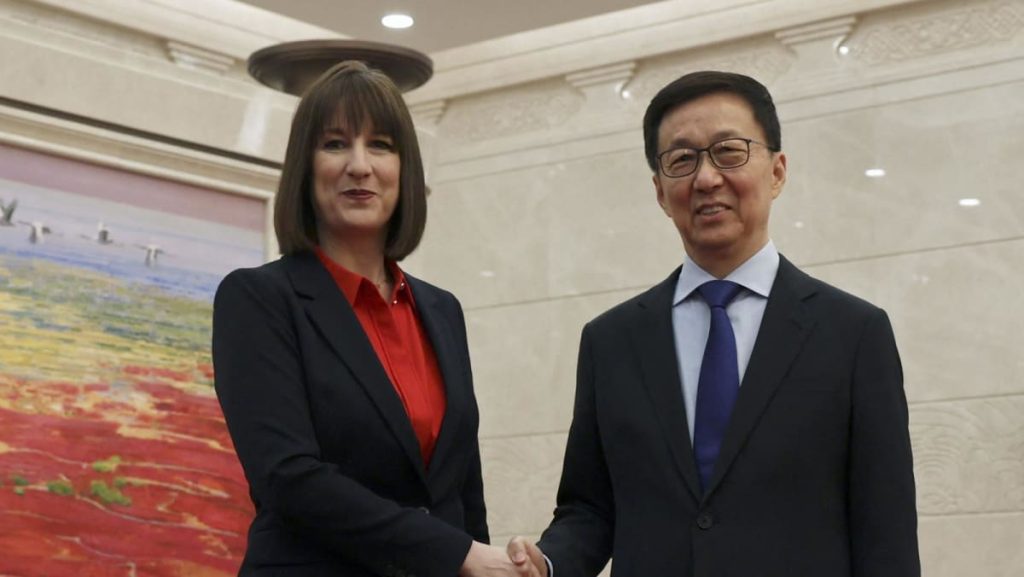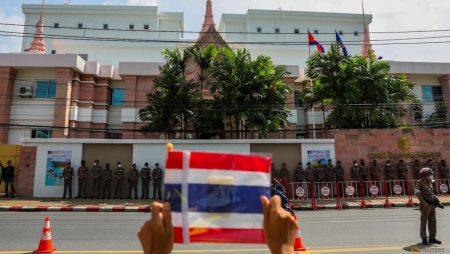British Chancellor of the Exchequer, Rachel Reeves, embarked on a high-profile visit to China in January 2024, marking the most senior UK government official to engage with Beijing since former Prime Minister Theresa May’s meeting with President Xi Jinping seven years prior. The visit held significant economic implications for the UK, coinciding with soaring borrowing costs that reached a 17-year high, putting immense pressure on the ruling Labour Party’s efforts to stimulate economic growth. Reeves’s trip aimed to re-establish dialogue and explore avenues for economic cooperation with the world’s second-largest economy at a time of significant financial challenges for the UK. While acknowledging the turbulent global financial markets, Reeves emphasized the unwavering nature of the fiscal rules outlined in her October budget, highlighting economic growth as the government’s primary objective. She positioned the China visit as a crucial step towards achieving this goal, focusing on unlocking tangible benefits for British businesses through enhanced export opportunities and international trade.
Reeves’s visit occurred amidst a backdrop of domestic political pressure, with opposition parties urging her to address the escalating financial crisis at home. Despite these calls, the Prime Minister’s office confirmed Reeves’s commitment to the long-planned trip, underscoring its importance in the UK’s broader economic strategy. The visit’s agenda included a key meeting with her Chinese counterpart, He Lifeng, to discuss a range of economic and financial matters. High on the agenda was the potential revival of the long-suspended annual trade and investment dialogue, signalling a desire to reinvigorate bilateral economic relations. Furthermore, the discussions aimed to explore potential areas of cooperation, including financial services, reflecting the UK’s interest in leveraging China’s vast financial market. China’s Foreign Ministry expressed optimism about the visit, emphasizing the mutual benefits of strengthened economic and financial cooperation between the two nations, and its potential to contribute to global economic stability.
The visit’s significance was further underscored by the participation of the Governor of the Bank of England and the Chief Executive of the UK’s Financial Conduct Authority, demonstrating a coordinated effort to address critical financial and regulatory matters. While economic cooperation was the primary focus, Reeves also acknowledged the importance of addressing human rights concerns in the bilateral relationship. This reflects a broader shift in the UK’s approach to China under Prime Minister Keir Starmer, who has sought to re-engage with Beijing while simultaneously addressing sensitive issues. This delicate balancing act underscores the complexities of the UK-China relationship, which has been strained in recent years by disagreements over trade, human rights, and Hong Kong. Despite these challenges, Starmer has demonstrated a willingness to engage with Xi Jinping, marking a departure from the more confrontational stance of his predecessors.
However, the path to restoring trust remains complex, particularly in the wake of allegations concerning a Chinese businessman’s alleged spying activities through connections with a member of the British royal family, highlighting the lingering suspicions and sensitivities that complicate the relationship. The UK government, under Foreign Secretary David Lammy, has articulated a doctrine of “progressive realism” to guide its interactions with China. This approach entails pragmatic engagement on areas of mutual interest, such as trade, climate change, global health, and AI regulation, while simultaneously addressing areas of concern, including human rights abuses and support for Russia. This nuanced approach reflects the UK’s recognition of China’s economic importance while acknowledging the need to address critical issues related to human rights and geopolitical stability.
Reeves’s visit comes at a critical juncture for the UK, grappling with economic challenges and seeking avenues for growth. China, with its vast market and economic influence, presents a significant opportunity for the UK to expand trade and investment ties. However, the visit also highlights the delicate balancing act the UK must perform as it navigates the complexities of its relationship with China. Balancing economic interests with concerns about human rights and geopolitical tensions will require a nuanced and multifaceted approach. The “progressive realism” doctrine outlined by Foreign Secretary Lammy represents an attempt to navigate these complexities, emphasizing engagement and cooperation where possible while also addressing areas of disagreement. The success of Reeves’s visit and the long-term trajectory of UK-China relations will depend on the ability of both sides to navigate these complexities and find common ground while addressing sensitive issues.
The visit also underscores the broader geopolitical context in which UK-China relations are unfolding. The escalating tensions between the US and China, coupled with the war in Ukraine and growing concerns about Taiwan, add further layers of complexity to the situation. The UK is seeking to position itself in this evolving landscape, balancing its traditional alliance with the US with its desire to maintain strong economic ties with China. This delicate balancing act will require careful diplomacy and a clear understanding of the competing interests at play. Reeves’s visit can be seen as a key step in this process, as the UK seeks to redefine its relationship with China in a rapidly changing world. The outcomes of this visit will have significant implications not only for the UK’s economic prospects but also for the broader geopolitical landscape, as the world navigates an increasingly complex web of international relations.










